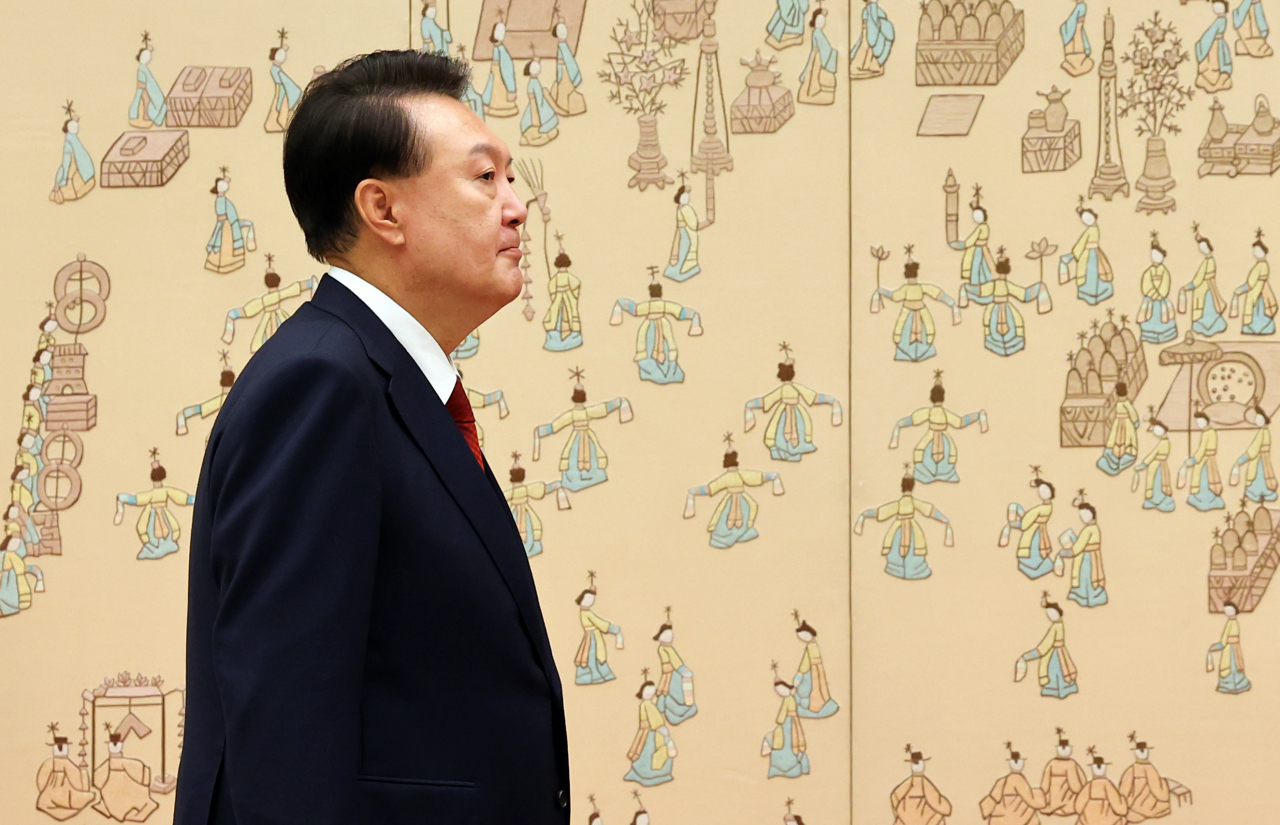 |
President Yoon Suk Yeol (Yonhap) |
President Yoon Suk Yeol on Monday vetoed a set of broadcasting bills sponsored by the main opposition that seeks to reduce his administration’s clout over public broadcasters, a week after the opposition-controlled parliament passed the contentious revisions.
Upon returning from a weeklong summer vacation that wrapped up Friday, Yoon approved a Cabinet motion that requested the president to strike down four bills designed to tweak the governance structure of the Korean Broadcasting System, Munhwa Broadcasting Corp. and Educational Broadcasting System, and the Foundation of Broadcast Culture, in a bid to curtail the current administration’s role in their board nominations.
“The latest exercise of veto power was an unavoidable action in response to the main opposition’s forceful push to pass the bills that aim to damage the broadcasters’ fairness and public interest of the people,” the presidential office said in a statement.
"The National Assembly should work together to build a social consensus on ensuring broadcasters serve as fair and objective tools for society," it added.
The bills, which were sent back to the Assembly, are likely to be scrapped as it requires a majority of the legislature’s 300 members to be present and two-thirds of them to vote in its favor to override Yoon’s veto. The ruling People Power Party currently holds 108 seats in the 300-seat opposition-controlled Assembly, which is a little over one-third of the total seats.
With his latest move, Yoon has so far vetoed 19 bills since his inauguration in May 2022 through Monday. The president will be left to work with the opposition-led parliament throughout his five-year term.
On July 30, the opposition-controlled parliament of the 22nd National Assembly passed the bills calling for the amendment of the Broadcasting Act, the Foundation for Broadcast Culture Act and the Korea Educational Broadcasting System Act alongside a fourth bill calling for changes in the decision-making body at the broadcasting watchdog Korea Communications Commission.
Through the revisions, the opposition parties sought to expand the boardrooms of KBS, EBS and MBC's direct authority, the Foundation of Broadcast Culture, by increasing the number of all of their non-executive directors to 21. Currently, KBS has 11 on its board, while the number of board members in both MBC's controlling shareholder and EBS stands at nine.
The revisions will also endow representatives of viewers and academic circles with the power to recommend directors of the top authorities of KBS, MBC and EBS. There are no clear legal grounds over how the boardroom directors are chosen, other than the broadcasting watchdog's eligibility to recommend or approve them.
Moreover, one of the four bills will no longer permit the broadcasting watchdog KCC to make any decisions without at least four out of five standing commissioners present at the meeting.
The Democratic Party of Korea says these bills are aimed at removing political influence from the public broadcasters.
This comes as the latest in a prolonged partisan gridlock in South Korea's political landscape, over a slew of contentious bills floated and railroaded by the Democratic Party.







